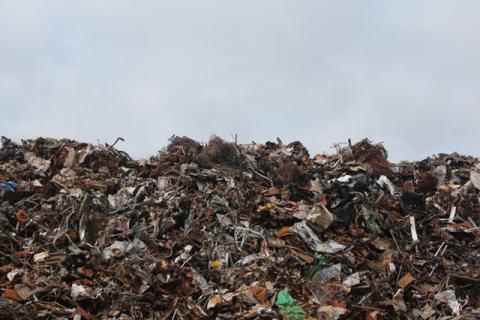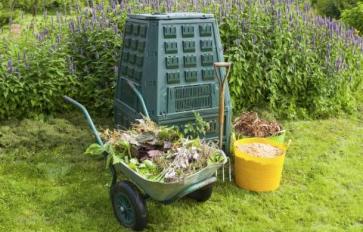
We all know that composting is a good thing. But why is sending food scraps to the landfill a bad thing? Don’t they simply become compost there?
The answer is no. Food scraps that end up in a landfill generate methane gas. Properly composted food waste will produce carbon dioxide, fertilizer for new plants, and a happy place for worms.
In the last few decades, many landfill managers have turned to a process called “dry tomb” to bury all sorts of waste. The landfills are lined with geo-textiles and clay, creating a shield of sorts between the waste and the earth surrounding it. Landfill managers then fill with waste, compact it, cover each day’s material with earth, and finally “cap” the pile with another layer of clay and geo-textiles. Fluid run-off is collected and treated, lowering the moisture level of the “tombs.” Organic materials decompose, but in a very different, anaerobic environment that does not favor natural biological activity. Methane and other gases build up in this setting. Since 1996, a majority of landfill managers are required by the EPA to collect the gases and burn them (called flaring), or use them as an energy source.
A compost pile, on the other hand, is anything but a dry tomb. It is a train station full of living organisms; worms, snails, bugs and bacteria all munch away at the decomposing material. Moisture and air is allowed in and out, creating an aerobic environment that generates heat and releases carbon dioxide instead of toxic methane gas. The resulting compost can be used to fertilize young plants, start seeds, or offer an inviting place for worms to continue the process.
According to the United States Environmental Protection Agency (EPA), more food waste goes to landfills than any other material. In 2012, it was estimated that only 5% of all food waste was diverted from landfills for composting. Four states in New England – Connecticut, Vermont, Massachusetts and Rhode Island – have enacted legislation to ban the co-mingling of food scraps with other waste destined for the landfill.
Vermont’s Act 148 will ban all food waste from the landfill entirely by 2020, and most businesses that generate food waste are already working with compost haulers and other facilities to divert their waste from the landfill.
So what would you rather do – send your kitchen waste to the landfill to turn into smelly gas and liquid, or allow nature to enjoy the benefits?








